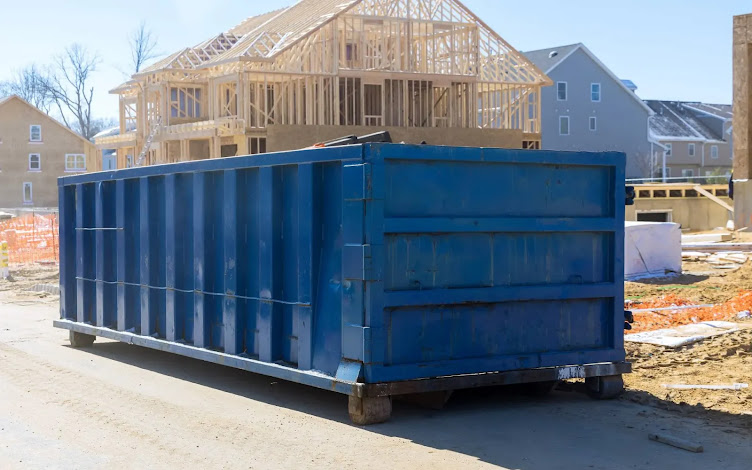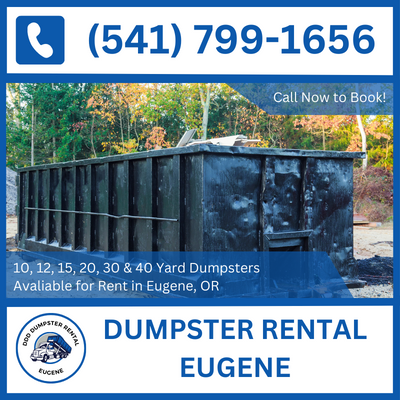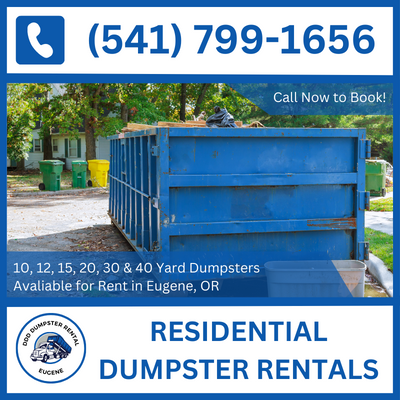Essential Questions to Ask Before Signing a Dumpster Rental Contract
When embarking on a project that generates substantial waste, such as home renovations, construction work, or large-scale cleanouts, renting a dumpster becomes an indispensable solution. However, before signing a dumpster rental agreement, it's crucial to ask the right questions to ensure that the service aligns with your project's requirements and prevents any unforeseen complications.
Failing to thoroughly understand the terms and conditions, pricing structure, rental duration, and other critical aspects of the rental process can result in unexpected costs and inconveniences. To make an informed decision and guarantee a smooth rental experience, consider the following essential factors:
- Selecting the appropriate dumpster size for your project's needs
- Clarifying permissible waste materials and disposal guidelines
- Ensuring pricing transparency and inquiring about potential additional fees
- Arranging delivery and pickup scheduling and discussing accessibility
- Understanding the service agreement and any hidden clauses
By addressing these key points and asking the right questions before entering into a dumpster rental contract, you can optimize your waste management process and avoid potential pitfalls. This article will provide a comprehensive guide to the 10 essential questions you should ask to ensure a hassle-free and cost-effective dumpster rental experience, ultimately contributing to the success of your project.
Understanding the Terms and Conditions
Alright, let's dive into the nitty-gritty of dumpster rental agreements! Before you sign on the dotted line, it's crucial to put on your detective hat and thoroughly investigate the terms and conditions. Trust me, you don't want any surprises lurking in the fine print!
First up, let's talk about the rental duration. This is the amount of time you'll have the dumpster in your possession, and it can vary depending on the company and your specific needs. Some rental periods might be as short as a day, while others can extend to a week or even longer. Make sure you have a clear understanding of how long you can keep the dumpster and if there's any flexibility in case your project takes longer than expected.
Next, let's discuss the types of materials you can toss into the dumpster. Permissible waste materials can include things like:
- Construction debris
- Yard waste
- Household junk
- Furniture and appliances
However, it's essential to know that there are also prohibited items, such as hazardous waste, tires, and electronics. Disposing of these items in the dumpster can lead to additional fees or even legal troubles, so it's best to steer clear!
Another crucial aspect to consider is the weight limit. Dumpsters have a maximum weight capacity, and exceeding it can result in overage charges. Imagine the dumpster as a giant scale, and you want to keep it balanced! It's a good idea to estimate the weight of your waste beforehand and choose an appropriate dumpster size to avoid any unexpected costs.
Lastly, make sure you understand your responsibilities as the renter and what the rental company will take care of. This can include things like:
|
Renter Responsibilities |
Rental Company Responsibilities |
|
Placing the dumpster in an accessible location |
Delivering and picking up the dumpster on time |
|
Ensuring the dumpster is not overloaded |
Disposing of the waste properly |
|
Keeping the area around the dumpster clean |
Providing clear instructions on what can and cannot be disposed of |
By taking the time to thoroughly review and understand the terms and conditions, you'll be well-equipped to make an informed decision and avoid any headaches down the road. Don't be afraid to ask questions and clarify any points that seem unclear. After all, a little extra effort upfront can save you a lot of stress in the long run.
Choosing the Right Dumpster Size
Now that we've tackled the terms and conditions, it's time to talk about one of the most important decisions you'll make when renting a dumpster: selecting the perfect size! Choosing the right dumpster size is like finding the perfect pair of shoes - it needs to fit just right.
When it comes to dumpster sizes, it's not a one-size-fits-all situation. Common dumpster sizes can range from a compact 10 yards to a whopping 40 yards. To give you a better idea, here's a quick breakdown:
|
Dumpster Size |
Ideal For |
|
10 yards |
Small cleanouts, minor home renovations |
|
20 yards |
Medium-sized projects, such as garage cleanouts or roof replacements |
|
30 yards |
Large home renovations, commercial construction projects |
|
40 yards |
Major construction sites, demolition projects |
So, how do you know which size is the perfect fit for your project? Consider these factors when making your decision:
- The scope of your project: Are you tackling a small home cleanout or a massive construction job? The bigger the project, the larger the dumpster you'll need.
- The type of waste: Different materials take up varying amounts of space. For example, heavy debris like concrete or bricks will require a sturdier and possibly larger dumpster compared to lighter waste like household junk.
- The duration of your project: If you anticipate your project to take longer, you might want to opt for a larger dumpster to avoid having to rent multiple smaller ones over time.
Keep in mind that choosing a dumpster that's too small can result in the need for multiple rentals, which can quickly add up in cost. On the other hand, selecting a dumpster that's too large might mean you're paying for space you don't need. It's all about finding that sweet spot!
If you're unsure about which size to choose, don't hesitate to reach out to the rental company for guidance. They've seen it all and can offer expert advice based on your specific project needs. Remember, the goal is to make your life easier, not harder!
Pricing and Payment
Alright, folks, let's talk about everyone's favorite topic: money! When it comes to renting a dumpster, understanding the pricing structure and payment process is crucial. You don't want any unexpected surprises when the bill arrives, right?
First things first, let's discuss pricing transparency. A reputable dumpster rental company like DDD Dumpster Rental Eugene will be upfront about their costs and fees. They should provide you with a clear breakdown of the cost of service, which typically includes the base rental price, delivery, and pickup. However, it's important to note that the total cost may include additional fees, such as:
- Overage charges for exceeding the weight limit
- Extra rental time beyond the agreed-upon period
- Disposal fees for certain types of waste
To avoid any confusion, ask the rental company to provide a detailed estimate of all the costs involved. This way, you can budget accordingly and avoid any unexpected expenses.
Now, let's dive into payment terms. Most dumpster rental companies require a deposit or upfront payment before delivering the dumpster. This ensures that they're protected in case of any damages or non-payment. The remaining balance is typically due upon pickup or a few days after the rental period ends. It's important to clarify the payment schedule with the company beforehand, so you can plan accordingly.
But wait, there's more! Did you know that some rental prices might be negotiable? It never hurts to ask if there's any wiggle room in the pricing, especially if you're a first-time customer or planning to rent multiple dumpsters. Some companies may offer discounts for longer rental periods or repeat business. Don't be shy – it's always worth inquiring about potential savings!
Here's a quick example of how a pricing breakdown might look:
|
Service |
Cost |
|
20-yard dumpster rental (7 days) |
$300 |
|
Delivery and pickup |
$100 |
|
Overage fee (per ton) |
$50 |
|
Disposal fee (for specific materials) |
$75 |
In this case, the base rental price is $300, but the total cost could be higher if you exceed the weight limit or have specific materials that require additional disposal fees.
To sum it up, understanding the pricing structure and payment terms is essential when renting a dumpster. Don't hesitate to ask questions, negotiate when possible, and get a clear breakdown of all the costs involved. By doing so, you'll be able to make an informed decision and avoid any financial surprises along the way.
Disposal Guidelines and Restrictions
Now that we've covered the financial side of renting a dumpster, let's talk about the fun stuff: what you can and can't throw in there! Understanding the disposal guidelines and restrictions is crucial to ensure a smooth and hassle-free rental experience.
First, let's cover the acceptable waste materials. These are the items that are generally welcome in most dumpsters:
- Construction debris (wood, drywall, tiles, etc.)
- Household junk (furniture, appliances, carpeting, etc.)
- Yard waste (branches, leaves, grass clippings, etc.)
- Scrap metal (as long as it's not hazardous)
However, it's essential to be aware of the prohibited items that should never find their way into your rented dumpster. These include:
- Hazardous waste (chemicals, oil, batteries, etc.)
- Electronic waste (computers, TVs, phones, etc.)
- Tires (most dumpster rentals don't accept these)
- Flammable or explosive materials
- Medical waste
Tossing any of these prohibited items into your dumpster can lead to some serious consequences, such as additional fees, legal issues, or even damage to the environment. Trust me, you don't want to be known as the person who caused a dumpster disaster!
If you're unsure whether a specific item is allowed or not, it's always best to ask the rental company. They'll be more than happy to provide you with a detailed list of acceptable and prohibited materials. Some companies may even offer special services for disposing of hazardous or electronic waste, so it never hurts to inquire.
Now, let's talk about being an eco-friendly dumpster user. Many rental companies prioritize environmentally friendly disposal practices, such as recycling and proper waste segregation. By following their guidelines and separating recyclable materials (like cardboard, plastic, and metal), you can do your part in reducing your environmental impact. Plus, you might even save some money on disposal fees!
Here's a quick table to summarize the dos and don'ts of dumpster disposal:
|
Acceptable Materials |
Prohibited Materials |
|
Construction debris |
Hazardous waste |
|
Household junk |
Electronic waste |
|
Yard waste |
Tires |
|
Scrap metal |
Flammable materials |
|
Medical waste |
By familiarizing yourself with the disposal guidelines and restrictions, you'll be able to use your rented dumpster responsibly and avoid any unwanted surprises. Remember, a little bit of knowledge goes a long way in ensuring a successful and eco-friendly dumpster rental experience!
Delivery, Pickup, and Accessibility
Alright, let's dive into the logistics of getting your dumpster delivered and picked up, and making sure it's accessible for your project. Think of it as the dumpster's grand entrance and exit!
First up, let's talk about scheduling. When you're ready to have your dumpster delivered, it's important to give the rental company enough notice. This ensures that they can fit you into their schedule and have your dumpster arrive on time. Most companies require at least a few days' notice, but it's always best to book your rental as early as possible to avoid any last-minute scrambling.
Now, let's discuss dumpster placement. When it comes to accessibility, you'll want to choose a spot that's easy for the rental company to reach and for you to fill up with waste. Ideally, the location should be:
- Close to your work area
- On a flat, stable surface (like a driveway or parking lot)
- Free from overhead obstacles (like power lines or tree branches)
- Easily accessible for the delivery truck
But wait, what happens if your project takes longer than expected? That's where rental period flexibility comes in handy. Some dumpster rental companies offer the option to extend your rental period if needed. Just keep in mind that this may come with additional fees, so it's important to communicate any changes in your timeline as soon as possible.
When it's time for the dumpster to be picked up, make sure the area around it is clear and accessible. If you've rented a dumpster with doors, be sure to close and secure them before the pickup. And if you have any remaining waste that didn't quite fit, let the rental company know – they may be able to provide a solution, like an additional pickup or a smaller dumpster for the leftover items.
By keeping these delivery, pickup, and accessibility factors in mind, you'll be able to ensure a smooth and efficient dumpster rental experience from start to finish. Just remember, a little bit of planning and communication goes a long way!
Customer Service and Support
When it comes to renting a dumpster, having excellent customer service and support can make all the difference. After all, you want to feel confident that you're in good hands throughout the entire rental process, right?
A top-notch dumpster rental company will prioritize responsive customer service. This means that when you have questions or concerns, you can count on them to provide timely and helpful answers. Whether you need assistance with choosing the right dumpster size, understanding the disposal guidelines, or scheduling your delivery and pickup, a dedicated support team should be ready to help.
Look for a company that offers multiple ways to get in touch, such as:
- Phone support
- Email inquiries
- Live chat on their website
- Social media messaging
Having various communication channels ensures that you can reach out in the way that's most convenient for you.
But great customer service doesn't stop there. A reliable rental company will also provide support throughout the rental process. This means they'll be available to address any issues that may arise during your rental period, such as:
- Answering questions about acceptable waste materials
- Helping you troubleshoot any challenges with filling the dumpster
- Providing guidance on properly securing and preparing the dumpster for pickup
By choosing a dumpster rental company that values exceptional customer service and support, you'll have peace of mind knowing that you're not alone in navigating the rental process.
Conclusion
In conclusion, asking the right questions before signing a dumpster rental contract is essential for a successful and stress-free waste management experience. By understanding the terms and conditions, choosing the appropriate dumpster size, being clear on pricing and payment, familiarizing yourself with disposal guidelines, arranging delivery and pickup logistics, and ensuring excellent customer service and support, you'll be well-equipped to make an informed decision.
Remember to:
- Thoroughly review the rental agreement
- Consider your project's specific needs
- Ask questions and clarify any uncertainties
By taking the time to address these crucial aspects, you'll be able to optimize your dumpster rental experience and focus on the success of your project. Don't hesitate to reach out to reputable dumpster rental companies for guidance and support throughout the process. With the right preparation and knowledge, renting a dumpster can be a seamless and efficient solution for your waste management needs.
Our Eugene, OR Service Area



No comments:
Post a Comment